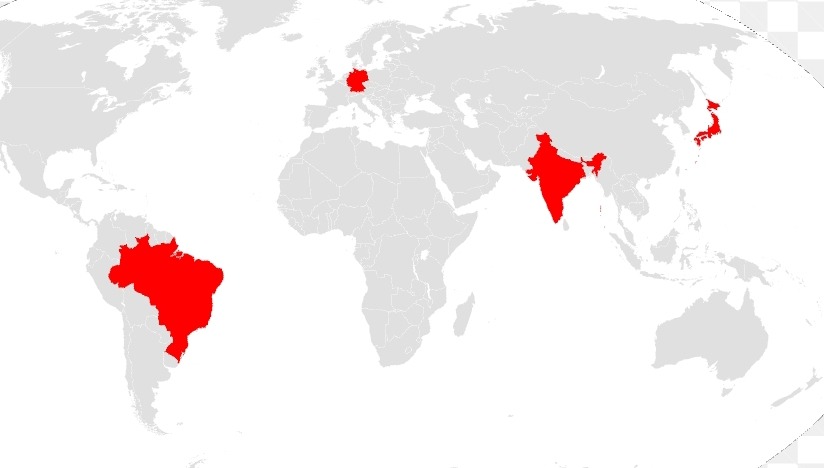New Delhi, September 26 (HS). A group of four countries India, Brazil, Germany and Japan have reiterated their demand for reform in the United Nations. According to the Ministry of External Affairs, on September 23, on the occasion of the 79th session of the United Nations General Assembly, the foreign ministers of these countries, Brazilian Foreign Minister Mauro Vieira, German Foreign Minister Annalena Baerbock, Indian Foreign Minister S Jaishankar and Japanese Foreign Minister Yoko Kamikawa held a meeting. Its purpose was to assess the situation of the United Nations Security Council and discuss the possibilities of reform.
The statement issued today by the four countries noted the current significant challenges to the multilateral system, including the United Nations. They stressed that a comprehensive reform of the Security Council is an essential part of any effort to make the United Nations better reflect contemporary geopolitical realities and thus fit for the present and the future.
Looking ahead to the upcoming 80th anniversary of the United Nations in 2025, the G4 Ministers underlined the urgency of Security Council reform, as well as their firm commitment to this goal. The G4 Ministers reiterated their support for each other's candidatures as new permanent members in a reformed Security Council.
He welcomed the “Summit of the Future” on 22 and 23 September, where world leaders strongly called for urgent reform of the Security Council.
In this regard, the Ministers from Germany, India and Japan also welcomed Brazil's initiative to launch a call for action on global governance reform in the context of Brazil's presidency of the G20. They stressed the importance of transforming the global order and also emphasized that the discussion on UN Security Council reform remains a top priority after the “Future Summit”.
The G-4 Ministers reiterated their call for expansion of the UN Security Council membership in both permanent and non-permanent categories, which has been supported by a significant number of Member States during the negotiation process, in order to enhance the Council’s legitimacy and ensure its effectiveness. They agreed on the need to enhance the role and participation of developing countries and countries that make significant contributions to international peace and security in both membership categories in the Security Council. In this regard, they also stressed the importance of better representation of under-represented and un-represented groups and regions, such as Africa, Asia-Pacific and Latin America and the Caribbean, in both membership categories.
The Ministers reaffirmed their strong support for the Common African Position (CAP) contained in the Ezulwini Consensus and the Sirte Declaration. Reviewing the work of the 78th session of the United Nations General Assembly, the G4 Ministers positively noted the efforts made by the Co-Chairs of the Intergovernmental Negotiations (IGN), including several rounds of debate on reform models proposed by States and groups, which is a concrete step towards reform. At the same time, the G4 Ministers expressed deep concern at the continued absence of substantial progress in the IGN and underlined the urgent need to commence negotiations based on the written brief.
 look news india
look news india
